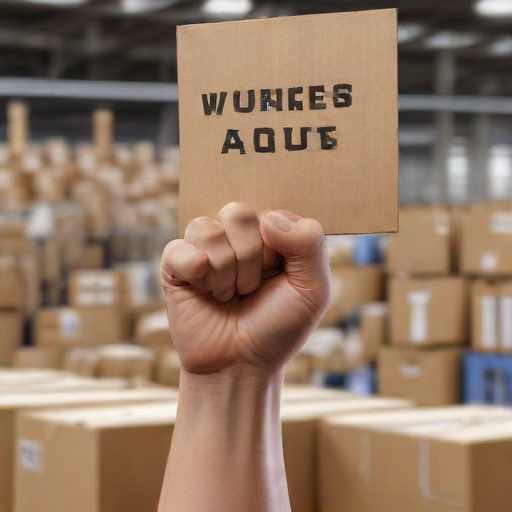Amazon workers across the globe are set to strike during one of the busiest shopping periods of the year, Black Friday, as part of a protest termed “Make Amazon Pay.” This strike is organized by a coalition of labor unions, including UNI Global Union and Progressive International, and will take place in 20 countries, impacting major cities in the United States, Germany, the UK, Japan, and Brazil.
Beginning on Black Friday and extending through Cyber Monday, the protests aim to highlight issues such as labor abuses, environmental concerns, and overarching threats to democracy. The union movements are calling for better wages and the right for employees to unionize. The “Make Amazon Pay days of resistance” is the fifth annual demonstration of its kind, intended to hold the company accountable while coinciding with peak holiday shopping.
The upcoming strike could disrupt holiday deliveries, as thousands of workers from various regions—including major German cities and New Delhi—are expected to join the protest. Workers in France and Bangladesh will also take part in demonstrations, advocating for fair treatment.
Christy Hoffman, general secretary of UNI Global Union, emphasized the relentless pursuit of profit by Amazon’s leadership at the expense of workers’ rights and the environment. She underscored that the desire for fair treatment and union representation is strong among workers worldwide.
While the protest is gaining traction, Amazon has pushed back against these claims. The company claims that it offers excellent pay, benefits, and opportunities right from the start of employment. Amazon recently announced a significant investment to boost pay rates, bringing the average base wage to over $22 an hour, alongside extensive benefits that include health insurance, a 401(k) program with matching, and paid parental leave.
Despite the company’s assertions, workers have become increasingly vocal about their rights, especially since the pandemic led to a surge in online purchases. Notably, a group of workers in Staten Island succeeded in forming the first U.S. union at Amazon in 2022, although other attempts at unionization have faced challenges.
Experts suggest that the rise of inflation and living costs is fueling collective action among workers, providing an opportunity to challenge corporate practices. Progressive International’s co-general coordinator commented on the global impact of solidarity in labor movements, indicating that unity can drive significant change.
In summary, the “Make Amazon Pay” protests signify a growing determination among employees to advocate for their rights and conditions. As the holiday shopping season approaches, the outcomes of these strikes could resonate widely, potentially prompting a shift in how large corporations like Amazon address workers’ concerns. This demonstration highlights not only the plight of workers but also the increasing momentum for labor rights movements worldwide, portraying a hopeful narrative of collective action leading to meaningful reform.
